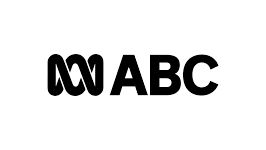BACKSTAGE
9 Jul 2024
TERMINOLOGY MATTERS

Subscribe to CX E-News
How to project your true intent clearly
Words are powerful things. Get them right and you can inspire millions to follow you. Get them wrong and you could just as easily alienate millions more.
As unofficial inhouse AV tech for the local Memorial Hall, I had a recent enquiry from a potential hirer. They asked: “how can they hook up to an overhead projector?” My first thought was “just put a transparency on top of it.” I mean, that’s how overhead projectors (OHP) work, right?
When they next mentioned PowerPoint presentation, it occurred to me that an OHP was not what they were after. I asked if they wanted a data projector and the response was “nah, we want one of those projectors over our heads!”
It was obvious to me what they were after but equally clear that they did not understand the terminology commonly used with this type of tech. I would consider it ubiquitous, but this particular hirer did not. Which lead me to ponder the use of words, and where they veer between jargon and terminology.
Jargon
All industries (or sectors, groups, disciplines, etc) have their own lingo. It is a necessary shorthand that saves much time for practitioners. Unfortunately, it also excludes outsiders or newbies. Tech industries are some of the worst offenders. I mean, consider the following statement: “penetration testing will occur during a red team exercise that is subject to the traffic light protocol.” I’m IT savvy (and qualified) – yet this is near gibberish to me. It reads like some crap dreamed up by a Mid-Level Manager (MLM) at a Multi-Layer Marketing (also MLM) company trying to justify their position.
Sometimes, precise industry aligned terminology is appropriate and efficient. Terms like ‘downscaling, de-interlacing, ANSI lumen, and impedance matching’ are task specific and need be technically descriptive and/or complex by their very nature. But many expressions are just plain confusing.
The ‘PowerPoint presentation’ referred to above could be construed to mean ‘how proud a General Purpose (power) Outlet (GPO) sits from another surface’. More commonly, GPO refers to a ‘General Post Office’. In these cases, it’s all about context.
While tech sectors are pretty bad at using non-inclusive language, medical is one of the worst that I have encountered. Given regular and detailed exposure to this realm, I’ve found that the easiest way to be understood is to learn the jargon and use it to communicate with health professionals. Particularly, using correct medical terminology for conditions or body parts and scientific names for medications.
One doctor recently thanked me profusely for having made the time and effort to learn these terms – it certainly got us through our appointed time together with much greater efficiency and accuracy than ‘my back hurts a bit’ would permit. It was clear to him that I have advanced knowledge that is beyond five minutes with Dr Google.
Unfortunately, inscrutable idioms are used by some professionals to appear more knowledgeable than they actually are. For mine, the worst offenders are lawyers and bureaucrats. Their lingo is often purposely obtuse with the specific goal of alienating anyone who is not in their inner circle. Further, they seem to think it justifies charging more (or providing less) than those of us who use our common tongue.
Nomen deminutivum
Abbreviations can save considerable time and are necessary tools. Consider AV, VoIP, BGM, DAC, SAW, SPL, or HDMI – all common to most CX readers. This is all good for those in the know but can make communications impenetrable for novices. It is wise not to assume that everyone knows the secret code.
Dependent on the circumstance it is used in, IP can mean both Ingress Protection or Intellectual Property. PA can denote Public Address or Personal Assistant. Does TBC equal Time Base Correction or To Be Confirmed? Again, context matters.
In most fields, feedback is a positive term, denoting a response to a product, service, or task. In the audio world, feedback is less than desirable and won’t elicit favourable responses from audience or clients. Especially if it emanates from their foldback. It is wise to monitor such occurrences.
Lay language
I actually know the hall hirer in the intro pretty well. She is highly intelligent, motivated and organised. She ran a financial services company well enough to be able to retire at 50 and I have great respect for her as a person. I also know her well enough to realise that she does not understand anything IT or black box related, nor is likely to invest any great effort in doing so. So, it’s up to me to find the best vocabulary for this scenario, without sounding like a smart-arse.
A large part of my gig over the years has been serving as the translator between technical jargon and simple, everyday terms or concepts that a layperson can understand. It is tempting to scoff and look down the nose at people who don’t know your lingo. But neophytes are not necessarily stupid, just unaware of the specific terms inherent to a particular discipline. Be patient while they learn.
Hopefully, my choice of words above made sense to you, the reader. Even more hopefully, that they made you think about how you use your own words as you project them onto the world. Remember, with great power also comes great responsibility.
Subscribe
Published monthly since 1991, our famous AV industry magazine is free for download or pay for print. Subscribers also receive CX News, our free weekly email with the latest industry news and jobs.






